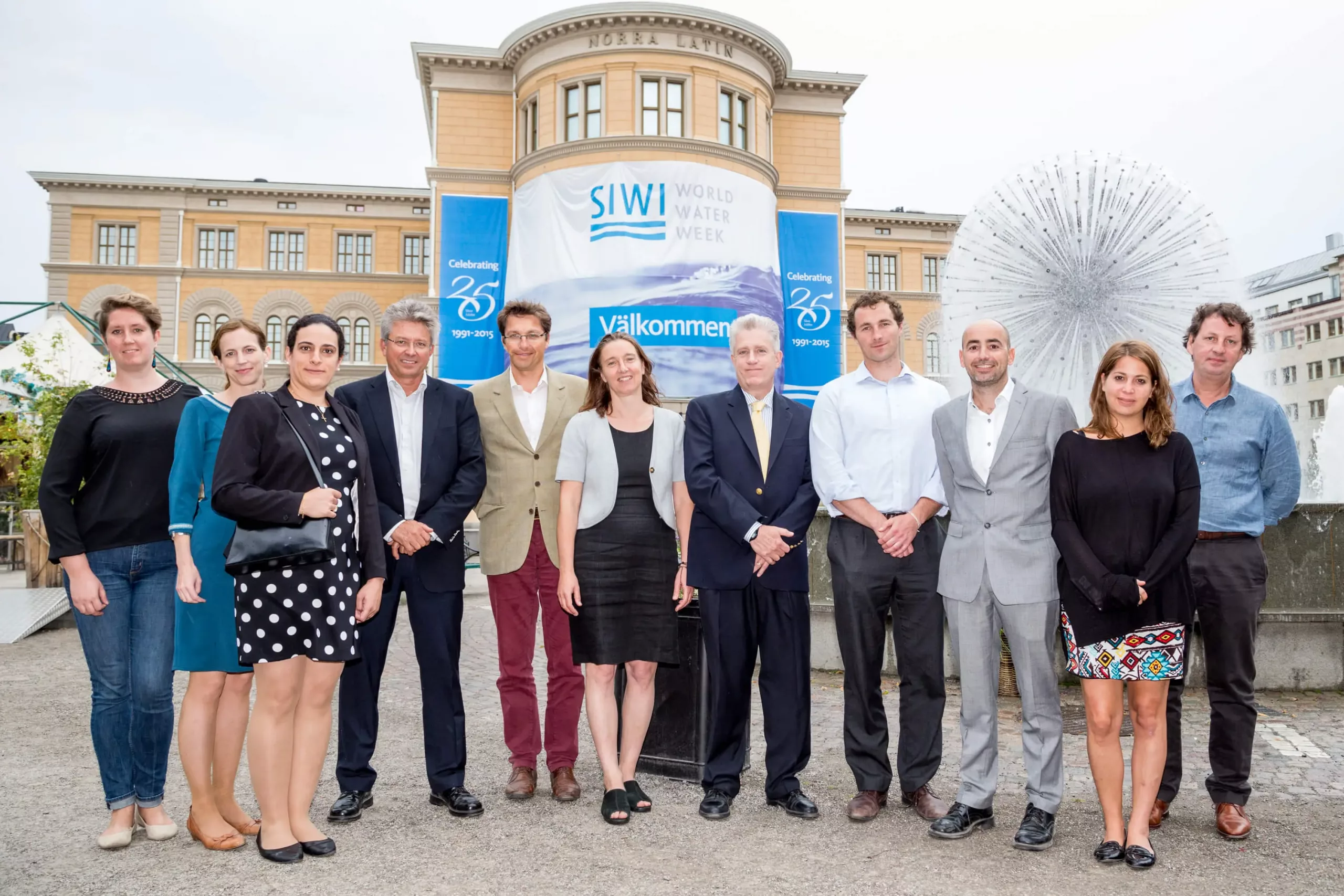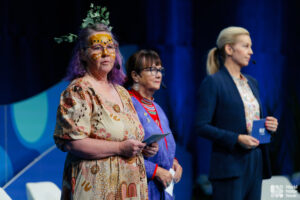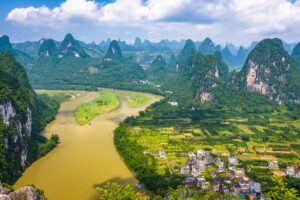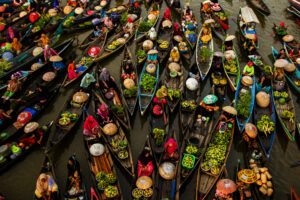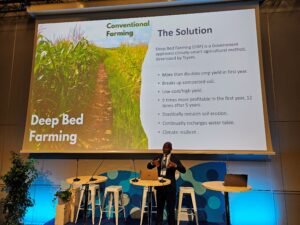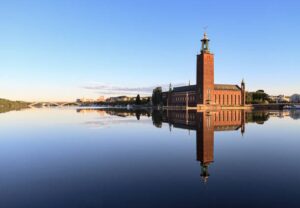WGF Events at World Water Week
Join us at World Water Week where we will be hosting and participating in a number of events. Click here to see the full WGF programme.
Balancing competing interests and opportunities for better wastewater governance
Sunday 27th of August 9.00 – 10:30
Convenors: CEPT University India; GIZ — Sustainable Sanitation Alliance; Stockholm Environment Institute; Swedish International Agricultural Network Initiative; UNDP-SIWI Water Governance Facility and Water Research Commission
With growing interest in harnessing the potential of wastewater, there is a growing need to address conflicting interests associated with managing and using this resource. This event will explore how to navigate these interests from a policy and practical perspective, through a wide representation of wastewater stakeholders, including farmers, municipal representatives, public health and environmental practitioners, researchers, and entrepreneurs.
Global Water Solidarity- Promoting decentralized solidarity in WASH sector
Sunday 27th of August 11.00 – 12.30
Convenor: UNDP-SIWI Water Governance Facility
Global Water Solidarity (GWS) is an International Platform within the UNDP-SIWI Water Governance Facility portfolio established to promote the decentralized water solidarity approach in water and sanitation sector. The Platform gathers over 100 members and spreads its local level facilitated projects in over 10 countries. The objective of the event is to demonstrate a solid case of the GWS contribution to the new 2030 agenda through an enhanced policy and governance exchange solidarity financing mechanism.
Plastic soup and dead zones: Source prevention for cleaner seas
Sunday 27th of August 14.00 – 15.30
Conveners: Action Platform for Source-to-Sea Management; Deltares; FAO; Swedish Agency for Marine and Water Management; and the UNDP-Water Governance Facility at SIWI
Millions of tonnes of plastic enter the ocean from land-based sources every year. Nutrient loads from agricultural runoff and inadequate wastewater treatment continue to cause eutrophication and spread of dead zones in our coastal and marine waters. This event will follow-up on the outcomes of the High-Level UN Conference to Support the Implementation of SDG 14 held in June 2017, discuss opportunities and challenges to improve fresh- coastal and marine water quality as part of SDG implementation and present experiences and innovative approaches of source prevention to reduce marine pollution and litter.
Opening session of MENA FOCUS – Water Security and Water Integrity challenges
Tuesday 29th of August 9.00 – 10.30
Convenors: The World Bank Group and UNDP-SIWI Water Governance Facility
Over 60 percent of MENA’s population lives under high or very high water stress; 70 percent of the region’s economic activities are exposed to high or very high water stress. The session will discuss how integrity-bound water governance as cornerstone to address the water crisis and contribute to regional peace and stability.
Protection of the Sacred: Wastewater management and Indigenous Realities
Monday 28th of August 14.00 – 15.30
Convenors: International Labour Organization; Bremen Overseas Research and Development Association; Human Rights Watch; Te Kopu – Pacific Indigenous & Local Knowledge Centre of Distinction and UNDP-SIWI Water Governance Facility
The event focuses on holistic worldviews of many indigenous peoples in relation to water; the implications of water and wastewater management on indigenous culture and survival; and how other actors can ensure indigenous peoples participate in decision-making, planning and designing of solutions. It will focus on the views on indigenous women.
Accountability in WASH: from emergency to development
Monday 28th of August 16.00 – 17.30
Convenors: Global WASH Cluster; UNDP-SIWI Water Governance Facility and United Nations Children’s Fund
During emergencies and crisis, multiple coping strategies and external aid modalities to urgent needs to water and sanitation emerge which lead to a diverse set of service delivery models. Roles of development partners, state, provider and citizens in WASH delivery are often in a flux and relations among stakeholders are weak, convoluted or even, non-existent. This session will consider how accountability mechanisms can be set up to ensure that investment in WASH strengthens and not undermines the relationship between service delivery and long-term state building.
Open government and water: a new water governance paradigm
Wednesday 30th of August 14.00 – 15.30
Convenor(s): Fundación Avina; Open Government Partnership and UNDP-SIWI Water Governance Facility
The open government paradigm set the principles of transparency, citizen participation and accountability at the heart of policy making and promotes the collaboration of civil society and government to improve public and citizen services. In this sense, addressing water issues with an open government approach represents an opportunity for advocacy on public sector policies to ensure access to water rights. That is why more water commitments deserve to be incorporated into the National Action Plans developed by member governments to the Open Government Partnership. The event’s design will include panel discussions from countries (government and civil society) to share their experience including water commitment in OGP National Action Plans.
